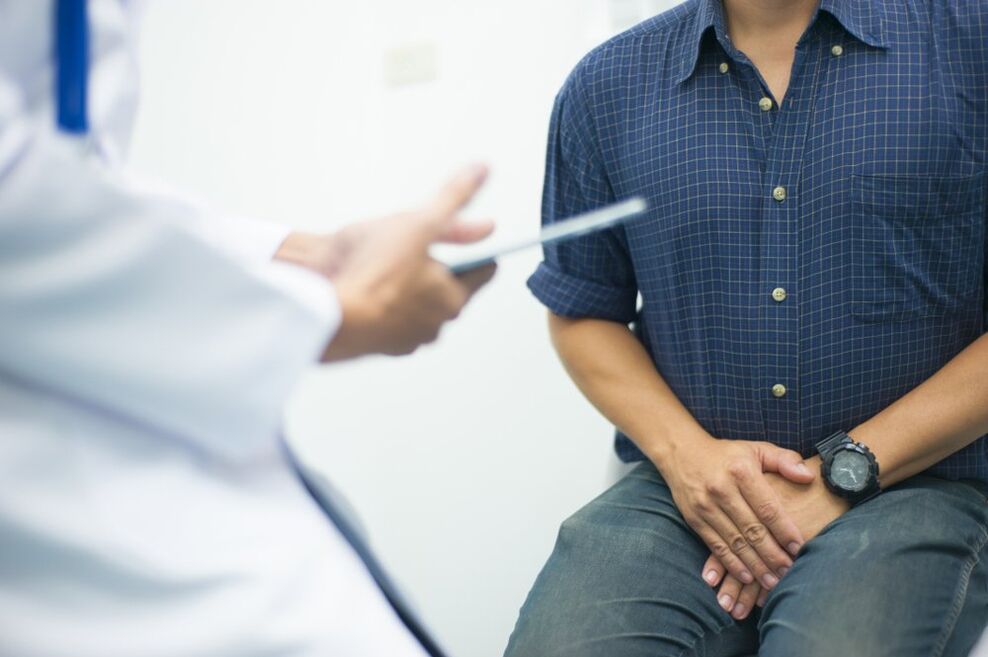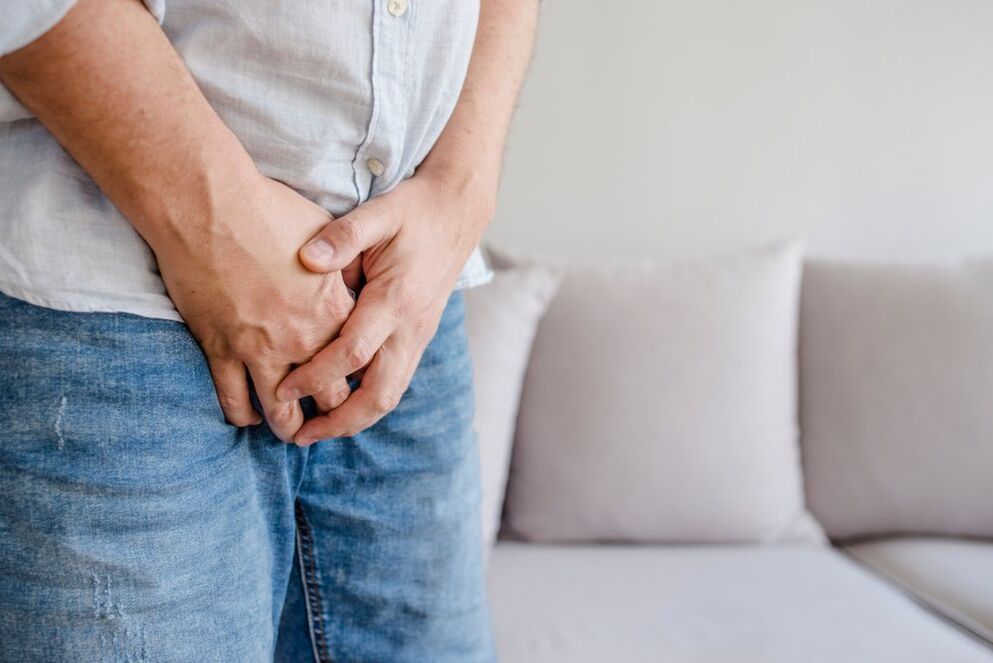
Prostatitis is a specific disease, typical mainly of men of reproductive age. It is characterized by acute or chronic inflammation of the prostate - the second "heart" of a man.
It is not always easy to recognize the signs of prostatitis in men, especially if the pathology has a chronic course, without a preliminary acute stage. If the process is acute, then in this case the symptoms of prostatitis in men will be quite typical and pronounced.
If a man has the first signs of prostatitis, he should immediately consult a doctor. Even a slight malaise, indicating the development of a disease of the genitourinary system, can lead to serious complications.
The ability to recognize the first symptoms of the inflammatory process allows you to quickly diagnose the pathology and begin its treatment. Therefore, every man should get acquainted with them in order to avoid serious problems that prostatitis entails.
The prostate and its role in a man's life
Although the prostate is small, if its function is impaired, a man can experience many problems. The prostate is a walnut-sized organ, located between the penis and the bladder. The prostate produces a secret which mixes with semen to form complete seminal fluid.
Unlike other prostate conditions, such as prostatic hypertrophy or cancer, which often affect older men, prostatitis can develop at any age, but its incidence peaks between the ages of 30 and 50.
Types of prostatitis

Depending on the severity of the symptoms, the time of their appearance and the duration of the disease, two variants of the pathology are distinguished:
- Chronic prostatitis. Symptoms can be subtle and come and go over several months. This is the most common type of prostatitis and the causes of inflammation are usually non-infectious.
- Acute prostatitis. In this form, the symptoms of prostatitis in men are severe and develop suddenly. This variant of the disease most often causes a microbial infection, the condition can be serious and requires immediate treatment, up to and including hospitalization.
Chronic prostatitis problems
The causes of prostatitis have been studied for a long time, but the understanding of the essence of the process has been significantly revised in recent years. Chronic prostatitis, sometimes alternatively called chronic pelvic pain syndrome, is characterized by a set of symptoms that can lead to a significant deterioration in the quality of daily life for men. It is not always possible for a doctor to immediately determine chronic prostatitis, and further treatment is no less difficult to choose, since it depends on various causative factors and symptoms of prostatitis in men.
Unlike approaches used in the past, diagnosis and subsequent treatment rely on the separation of chronic bacterial prostatitis from other forms of the disease, which is considered a multifactorial disease. According to data published in Research and Reports in Urology in 2019, autoimmunity and systemic inflammation, nervous system dysfunctions, and psychological causes play a role in the development of chronic inflammation.
For chronic pelvic pain syndrome, various symptoms associated with the urinary organs, genital organs, rectum and perineum are typical, and often men can be treated for a long time for other pathologies, until finallyof account, it turns out that the problem is in the inflammation of the prostate.
Signs of prostatitis in men
If an acute inflammation of the prostate occurs, it is relatively easy to recognize it, the manifestations are quite sharp and pronounced. Early signs of prostatitis in men include:
- severe pain that radiates around the penis, testicles, anus, lower abdomen or lower back. Emptying the bladder can be painful;
- urinary problems, pain when the bladder is full, need to urinate frequently (especially at night), interrupted urination, urgent need to urinate and sometimes blood in the urine;
- against the background of severe swelling of the prostate gland and severe pain, acute urinary retention is possible;
- malaise, fever, nausea;
- light thick discharge from the urethra, odorless.
If these or other signs of prostatitis in men are detected, you should immediately contact a therapist or urologist.
Chronic inflammation: symptoms of prostatitis in men
You can speak of a chronic process if the following symptoms of prostatitis in men have been detected for at least the past three months:
- pain around the penis, in the testicles, anus, lower abdomen or lower back of a pulling, pressing or aching nature.
- pain when urinating, frequent or urgent need to urinate, especially at night, or intermittent urination.
- an enlarged or tender prostate on digital rectal examination, although this may be normal in some cases.
- intimate problems such as erectile dysfunction, pain during ejaculation or pelvic pain after sex.
These symptoms can have a significant impact on a man's quality of life. Without treatment, the condition can gradually worsen, symptoms of prostatitis appear more often.
How is the exam going?

At the first signs of prostatitis in men, you need to contact a urologist who will conduct a comprehensive diagnosis. The doctor will ask detailed questions about all the symptoms and events, health problems that precede them. Then, an examination of the genitals, the abdomen and a digital rectal examination will be carried out. The doctor inserts a gloved finger into the rectum to feel the prostate. During the study, discomfort is possible if the prostate is enlarged or inflamed. Additionally, blood and urine tests are ordered to look for signs of infection.
How is prostatitis treated?
The tactics of treatment of prostatitis will depend on the form of the disease - acute or chronic prostatitis.
For acute inflammation, when symptoms are sudden and severe, painkillers and a 2-4 week course of antibiotics are usually given. With acute urinary retention, hospitalization and urgent measures are required - bladder catheterization with urine diversion against the background of intensive treatment.
Treatment for chronic prostatitis, when symptoms come and go over several months, is usually aimed at eliminating any discomfort. Your doctor may suggest the following procedures:
- analgesics and anti-inflammatory drugs that eliminate pain and discomfort in the pelvis.
- alpha-blocker drugs that eliminate problems with urination. They help relax the muscles of the prostate and the base of the bladder.
- sometimes antibiotics may be prescribed if the microbial nature of the infection is confirmed or if there are indications that there has previously been an acute process that has not been cured.
The goal of treatment for chronic prostatitis is to reduce symptoms to a level where they do not interfere with daily activities.



















